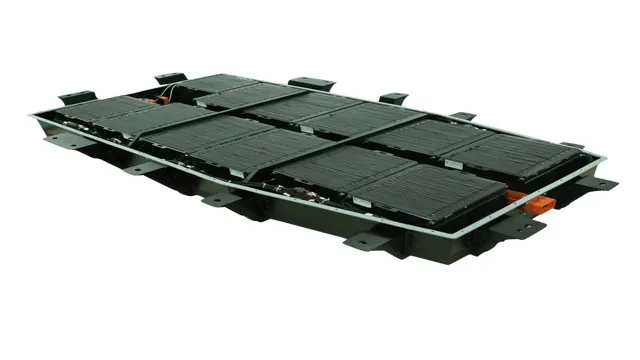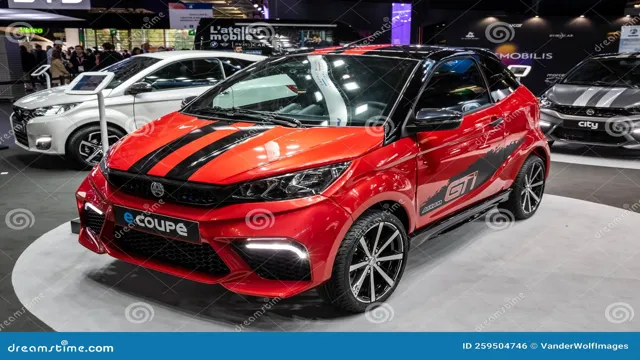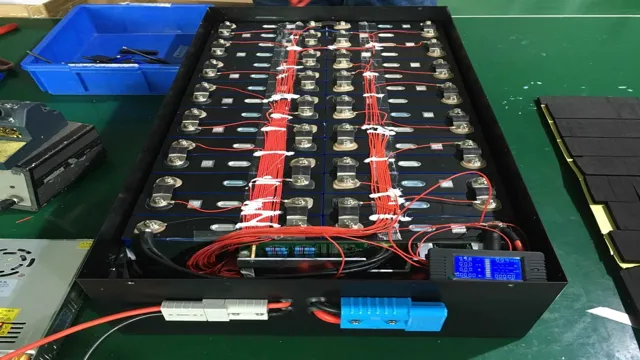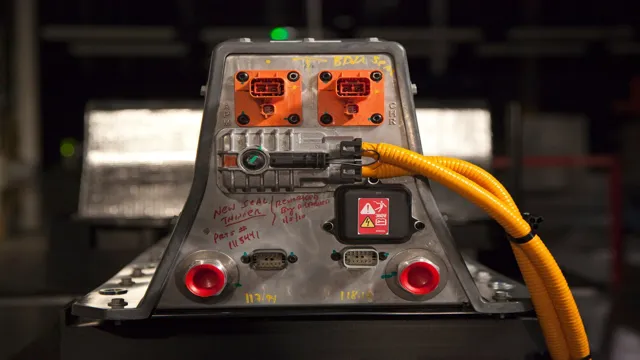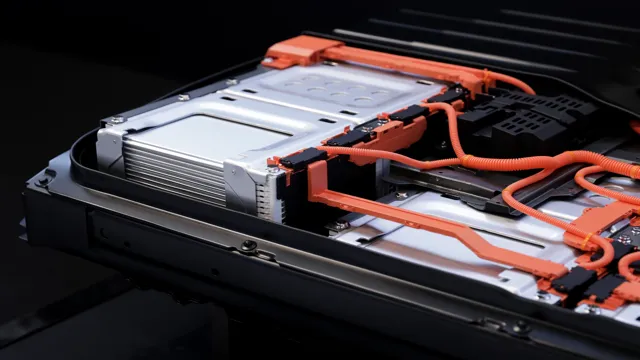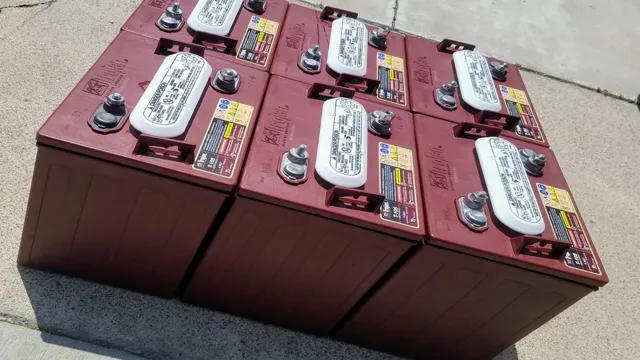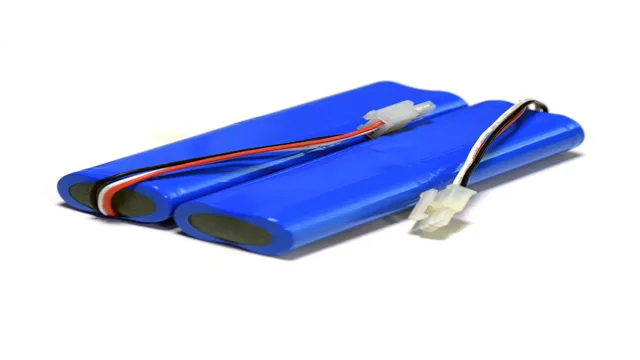Power Your Ride: The Ultimate Guide to Electric Car Battery Packs
Electric cars have been around for a while now, but it is only recently that there has been a significant push to transition from traditional gas-run cars to more environmentally conscious electric vehicles. While there are still ongoing discussions about the cost-effectiveness and reliability of electric cars, the consensus is that it is the way forward. One of the main concerns has been the limited range of electric cars and the time it takes to recharge, which are issues that are being addressed through advances in battery pack technology.
In this blog, we will explore the future of electric cars and how battery packs will significantly contribute to making them more reliable, efficient, and eco-friendly.
What Are Electric Car Battery Packs?
When it comes to electric cars, the battery pack is the heart of the vehicle. Electric car battery packs are essentially rechargeable energy storage systems that provide power to the electric motor. These battery packs are made up of several lithium-ion cells that are connected in series to create a high-voltage battery.
The total range of the electric car depends largely on the capacity of the battery pack, which is measured in kilowatt-hours (kWh). A higher capacity battery pack means more range, and vice versa. Manufacturers are constantly working on improving the technology, so newer battery packs have better energy density, faster charging times, and longer lifespans.
Ultimately, electric car battery packs are a crucial component of EVs and the development of more advanced battery technology is key to the widespread adoption of EVs in the future.
How Do Electric Car Battery Packs Work?
Electric car battery packs are the power source that drives electric vehicles. These packs contain multiple battery cells arranged in series and parallel configurations to provide the necessary voltage, capacity, and power needed to propel the vehicle. The most common type of battery used in modern electric cars is the lithium-ion battery, which offers high energy density and long life.
Electric car battery packs are complex systems that require sophisticated battery management software to regulate the charging and discharging of the cells, monitor their performance, and prevent damage from overcharging, overheating, or other factors. The performance of an electric car battery pack depends on many factors, such as the quality of the cells, the efficiency of the cooling system, and the driving conditions. In summary, electric car battery packs are the heart of an electric vehicle, providing the energy needed to power the electric motor and drive the wheels.
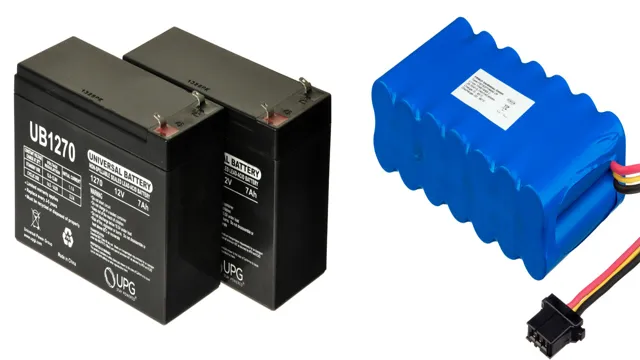
Benefits of Electric Car Battery Packs
Electric Car Battery Packs Electric car battery packs are the power source for electric vehicles (EVs). These battery packs consist of many lithium-ion battery cells, which store the energy needed to power the car’s electric motor. Compared to traditional gas-powered cars, electric cars have many benefits due to their advanced battery technology.
For starters, electric cars emit fewer pollutants, making them environmentally friendly. Additionally, electric cars are much cheaper to operate since the cost of electricity is significantly less than gasoline. Furthermore, electric cars provide a smoother and quieter ride than gasoline-powered cars as they have fewer moving parts.
Finally, as battery technology continues to improve, it is expected that electric cars will be able to travel further on a single charge, which will eliminate “range anxiety” for many drivers. Overall, Electric Car Battery Packs are the future of personal transportation, providing an eco-friendly, cost-effective, and enjoyable driving experience for all.
Types of Electric Car Battery Packs
When it comes to electric cars, the battery pack plays a critical role in determining range, efficiency, and reliability. There are several types of electric car battery packs that automakers use to power these vehicles. One type is the Lithium-Ion battery, which is the most common and often considered the standard for electric cars.
Another type is the Solid-State battery, which offers a higher energy density but still lacks the development and scalability of the Lithium-Ion battery. Additionally, we have the Nickel-Metal Hydride battery, which is older technology but still used in some hybrid cars due to its durability and reliability. Each of these battery packs has its benefits and drawbacks, and automakers must choose the one that best fits their electric car model.
No matter the type of battery pack used, it is critical to monitor and maintain these batteries to ensure their longevity and safety.
Lithium-Ion Battery Packs
When it comes to electric car battery packs, lithium-ion batteries are the most popular options on the market. These batteries use a chemical reaction to store and release energy, making them incredibly efficient and long-lasting. However, there are different types of lithium-ion battery packs that can be used in electric cars.
The most common types include cylindrical, prismatic, and pouch configurations. Cylindrical batteries are the oldest and most established type, while prismatic batteries are flatter and more rectangular in shape. Pouch batteries are the newest and most flexible option, as they can be molded into various shapes and sizes.
Each type has its own unique advantages and disadvantages, so it’s important to choose the right battery pack for your specific needs. Overall, lithium-ion battery packs have revolutionized the electric car industry, providing cleaner, more efficient transportation for people around the world.
Nickel-Metal Hydride Battery Packs
When it comes to electric car battery packs, there are a few different types to choose from. One option is the nickel-metal hydride battery pack. These battery packs are often used in hybrid vehicles and can offer a good balance between performance and cost.
They are known for being relatively reliable and durable, with a moderate energy density. However, they are also not as efficient as some other battery options, which means that an electric car using a nickel-metal hydride battery pack may not be able to travel as far on a single charge as one using a different type of battery pack. Ultimately, the choice of which battery pack to use will depend on a variety of factors, including the budget, the desired range of the vehicle, and the specific needs of the driver.
But if you’re looking for a solid hybrid option, a nickel-metal hydride battery pack might be a good choice to consider.
Solid-State Battery Packs
When it comes to electric car battery packs, there are a few different types to choose from. One of the newest and most exciting developments in this field is the solid-state battery pack. This type of battery offers a few key advantages over traditional lithium-ion packs, including improved safety and longer lifespan.
Solid-state batteries use a solid electrolyte instead of the liquid electrolyte found in most lithium-ion packs. This makes them less prone to thermal runaway, which is a major safety concern with traditional batteries. Additionally, solid-state batteries can last for more charge cycles than lithium-ion batteries, which can help to reduce the cost of ownership over the life of an electric car.
While there are still some challenges to be overcome with solid-state batteries, including their currently high cost, many experts believe that this technology will play an increasingly important role in the future of electric cars.
Choosing the Right Electric Car Battery Pack
When it comes to choosing the right electric car battery pack, it’s important to consider a few key factors. Firstly, you’ll want to decide on the range you need. If you have a short commute or don’t travel long distances often, a smaller battery pack may be sufficient.
However, if you plan on taking longer trips, you’ll want to opt for a larger capacity battery to avoid range anxiety. Another important consideration is the type of battery chemistry used in the pack. Lithium-ion is the most common and reliable option, but there are also newer and experimental options available.
Additionally, you’ll want to look for a battery pack that’s compatible with your vehicle model and that comes from a reputable manufacturer. Don’t forget to check for any warranties or guarantees as well. By keeping these factors in mind, you can find the perfect electric car battery pack to suit your needs!
Considerations When Choosing a Battery Pack
Choosing the right electric car battery pack is crucial for ensuring optimal performance, longevity, and safety. When selecting a battery pack, several considerations must be taken into account, including its capacity, chemistry, voltage, weight, size, and cost. The capacity determines how much energy the battery can store and how far the car can travel on a single charge.
The chemistry affects the battery’s power density, cycle life, and environmental impact. The voltage determines the compatibility with the car’s motor and electronics. The weight and size affect the overall vehicle weight and distribution, as well as the available space for other components.
The cost can vary depending on the brand, technology, and features. Therefore, it is crucial to balance all these factors based on your driving needs, budget, and preferences. Whether you prioritize range, speed, acceleration, safety, or sustainability, there is a battery pack that can suit your needs.
Comparison of Different Battery Packs
When it comes to electric car battery packs, choosing the right one can make a big difference in the performance and range of your vehicle. There are various types of battery packs available in the market, each with its own set of advantages and disadvantages. Lithium-ion batteries are the most commonly used and offer high energy density, fast charging, and low maintenance.
However, they are expensive and may require cooling systems to prevent overheating. Nickel-metal hydride batteries are cheaper but have lower energy density and require more maintenance. Solid-state batteries are a newer technology that provides high energy density, longer lifespan, and faster charging times but are still in the early stages of development and are expensive.
Ultimately, the choice of the battery pack will depend on your driving needs, budget, and charging infrastructure. It’s essential to research and compare different options before making a decision to ensure you get the best value for your investment.
Future of Electric Car Battery Packs
As the demand for electric cars continues to surge, the future of electric car battery packs is a topic worth discussion. One trend that’s expected to grow is solid-state batteries. Unlike the current lithium-ion batteries used in most electric vehicles, solid-state batteries use a solid, ceramic electrolyte instead of a liquid electrolyte.
This makes them safer, more efficient, and capable of longer ranges. Furthermore, manufacturers are developing battery packs that have swappable modules. This innovation allows electric car owners to upgrade their battery pack without having to replace the entire vehicle or dispose of the old battery in an eco-unfriendly way.
With these advancements, the electric car battery pack will continue to evolve, improving performance and range, and reducing the cost of electric vehicles.
Conclusion
In conclusion, an electric car battery pack is like the heart of an electric vehicle, supplying all the power necessary to keep it moving. Just like a human heart, it needs proper care and maintenance to keep it pumping efficiently. So, let’s take care of our electric car battery packs, and they’ll take care of us by providing a smooth ride and a cleaner planet.
After all, as they say, a well-maintained battery pack is worth its weight in electrons.”
FAQs
What is an electric car battery pack?
An electric car battery pack is a grouping of cells that store electricity to power an electric vehicle.
How long does the battery pack of an electric car usually last?
The lifespan of an electric car battery pack varies depending on the type of battery, usage, and other factors, but it can last from 8-10 years or more.
Can I replace the battery pack of my electric car if it loses its charge over time?
Yes, you can replace the battery pack of your electric car when it starts to wear down or lose its charge over time.
How much does it cost to replace an electric car battery pack?
The cost of replacing an electric car battery pack varies depending on the make and model of the vehicle, but it can range from several thousand dollars to tens of thousands of dollars.
